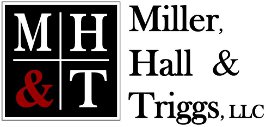Law Repeals Current Requirements and Imposes New Ones
By Joshua Herman
Effective January 1, 2015, the new Occupational Safety and Health Act (the “Act” or “OSHA”) becomes effective pursuant to Public Act 98-874, repealing the Safety Inspection and Education Act and the Health and Safety Act. The new law establishes federal occupational safety and health standards as default requirements and it applies to every public employer and its employees. While the Act permits the Illinois Department of Labor to adopt restrictions even more stringent than federal law requires, it also permits the Department to allow temporary and permanent variances from the Act upon request.
Generally, the Act requires a public employer to “provide reasonable protection to the lives, health, and safety of its employees” and to provide “each of its employees employment and a workplace which are free from recognized hazards that cause or are likely to cause death or serious physical harm.” The Act requires the Director of Labor to adopt rules requiring public employers to keep accurate records and make reports of “work-related deaths, injuries, and illnesses” as well as maintain records of employee exposure to “potentially toxic material or harmful physical agents.”
Employers should review their workplace notices because the Act requires public employers to inform their employees of their protections and obligations under the new Act. Because these notices must include applicable standards or rules the Department of Labor adopts under this Act, the Department will likely provide updated notices soon. Public employers must also provide employees “with information regarding hazards in the workplace, including information about suitable precautions, relevant symptoms, and emergency treatment.”
An employee who believes a violation of the Act has occurred may request an inspection by the Director of Labor, the enforcer of the Act. The Director may issue citations for violations, which are punishable by civil penalties (up to $10,000.00 per violation) and criminal penalties (ranging from a Class B misdemeanor to a Class 4 felony). A public employer or its representative may contest a citation or notice of violation by filing a request for hearing with the Director.
At a minimum, public employers should review their workplace policies, potential safety and health risks facing employees, and revise workplace notices to comply with the Act.
Posted in Commercial Law, Joshua Herman, Labor and Employment
